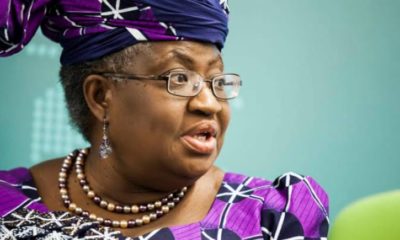- Fertiliser Production Hits 2.22m Metric Tonnes
The Federal Government’s investment in promoting local farming, particularly making affordable fertiliser available to farmers, may have paid off as production of made-in-Nigeria fertiliser may have hit 2.22 million metric tonnes.
Nigeria Sovereign Investment Authority (NSIA) Managing Director, Mr. Uche Orji, who made this known in Abuja, said NSIA’s investment was aimed at making fertiliser affordable all year round to farmers.
According to him, prior to December 2016, Nigeria’s stock of blended fertiliser was shipped into the country as fully finished products, even though urea and limestone, which constitute roughly two-third of the component of each bag were available locally.
Orji said it was in recognition of this that President Muhammadu Buhari approved the Presidential Fertiliser Initiative (PFI) for the local production of blended NPK 20:20:10 fertiliser.
According to him, the objective of the initiative was to deliver commercially significant quantities of affordable and consistently high-quality fertiliser at the right price and in time to Nigeria’s over 500,000 farmers across the country.
He said the target retail price regime at that time was between 50 per cent and 65 per cent of the prevailing market price.
Orji stated that after one year of running the programme, the NSIA noted that importation of finished fertiliser had reduced drastically.
“For the 2017 wet season, it was estimated that about N60 billion from the 2017 budgetary provisions for fertiliser was saved, while another saving of $150 million was conserved from foreign exchange window.
“To date, the programme has contributed to the resuscitation of 14 moribund blending plants, which represent 55 per cent of total installed capacity in Nigeria. Also, more than six million bags of 50kg NPK 20:10:10 fertiliser has been produced locally, which have been distributed to farmers,” Orji said.
The NSIA boss stated that the success of the Presidential Fertiliser Initiative was evident enough that Nigeria can sustainably produce fertilisers locally at a reasonable price without subsidy. He added that with the right model, any constraint can also be addressed.
Orji said as a result of the government’s investment in fertiliser production, several thousand jobs had been created and the nation had saved a significant amount in foreign exchange and subsidy payments. He reiterated that the NSIA had about 2.2 billion dollars in assets as at Dec. 31, 2017.
The Presidential Fertiliser Initiative was borne out of the desire to end fertiliser importation and the attendant impact on the country’s foreign exchange reserves.
It was designed to stimulate significant economic activities across the agriculture value chain and catalyse growth by meeting the fertiliser demand of farmers during the wet farming season.
Encouraged by the 2.22 million metric tonnes made-in-Nigeria fertiliser production capacity, the Federal Government said it planned to revive 12 moribund fertiliser blending plants to bring to 23 the total number of plants that will partake in this year’s PFI.
Minister of Information and Culture, Alhaji Lai Mohammed, who spoke at a media briefing in Lagos, the said 11 moribund plants with a combined capacity of over two million metric tonnes (MT) had been revived.
Fertiliser production in Nigeria, he said, has been a success story with the setting up of the PFI in December 2016 by President Muhammadu Buhari.
His words: “The PFI has turned out to be a magic wand in fertiliser production. Recall that the agricultural sector and the country’s food production were negatively impacted in 2016, as farmers became exposed to high and rising prices for key agric inputs.
“In 2017, PFI delivered 10 million 50kg bags (500,000MT) of NPK 20:10:10 fertiliser at a price of N5, 500 in time for the wet season. That’s down from the price of N9, 000 per 50kg bag in 2016 – a 40 per cent reduction.”
The Minister added that for 2018, PFI targets the delivery of 20 million 50kg bags (1 million MT), which will double the 2017 figure. He recalled that before PFI, each imported fertiliser bag was subsidised to the tune of N6, 000 per bag.
On some of the benefits of the PFI, the Minister said over six million bags of fertiliser had been sold to farmers at N5, 500 per bag.
“There is now a higher patronage for the country’s rail network due to movement of raw materials and finished goods.
“Also, the bag-making sector of the economy was boosted, with over 10 million packaging bags produced exclusively for PFI
“Sixty thousand direct jobs and even higher number of indirect jobs have been created,” Mohammed said, reiterating the government’s commitment to fertiliser and agricultural revolution.


 Naira4 weeks ago
Naira4 weeks ago
 Forex4 weeks ago
Forex4 weeks ago
 Naira4 weeks ago
Naira4 weeks ago
 Economy4 weeks ago
Economy4 weeks ago
 Cryptocurrency4 weeks ago
Cryptocurrency4 weeks ago
 Economy4 weeks ago
Economy4 weeks ago
 Social Media4 weeks ago
Social Media4 weeks ago
 Forex4 weeks ago
Forex4 weeks ago


























